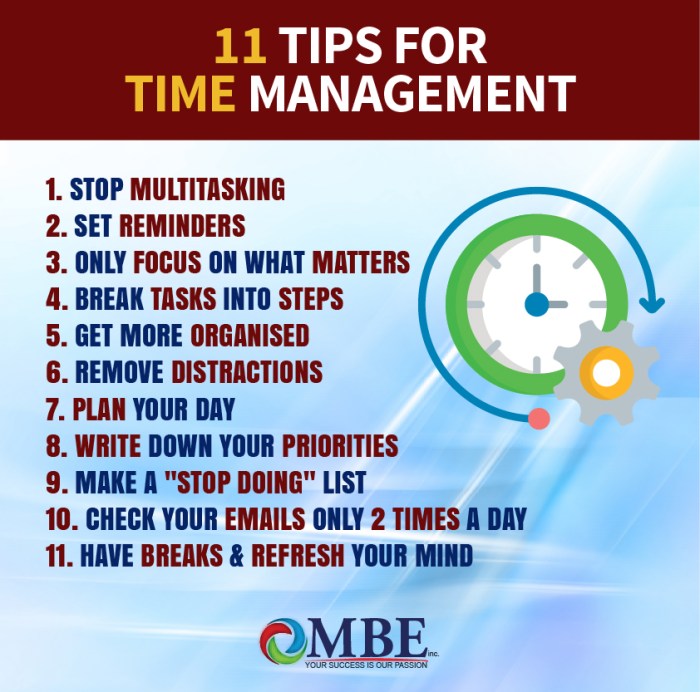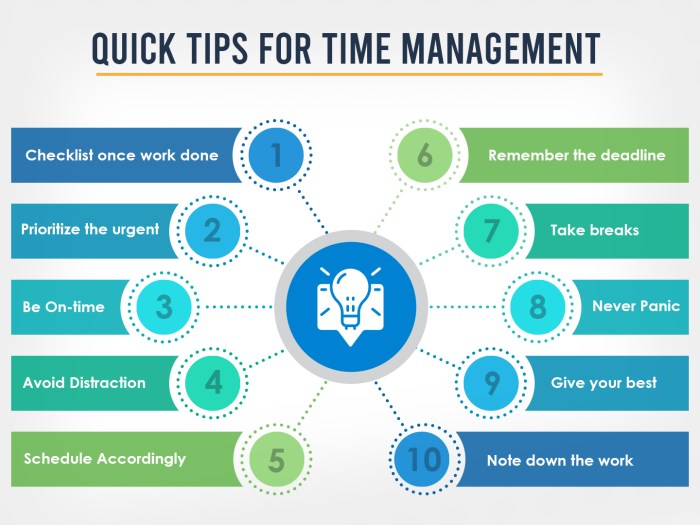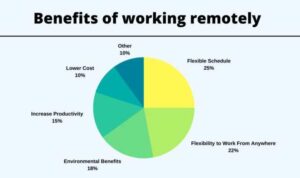Time Management Tips: Master Your Schedule and Boost Productivity with these killer strategies, tools, and hacks that will take your game to the next level. Get ready to dominate your day like a boss!
Are you tired of feeling overwhelmed and stressed out by your never-ending to-do list? Do you want to take control of your time and achieve success like a pro? Then buckle up, because we’re about to dive into the world of time management like never before.
Importance of Time Management
Effective time management is like the secret sauce for personal and professional success, yo! It’s all about being able to prioritize tasks, stay organized, and make the most out of every minute in the day. When you master time management skills, you’re setting yourself up for some major wins, both at work and in your personal life.
Benefits of Mastering Time Management
- Increased productivity: When you know how to manage your time effectively, you can get more done in less time. It’s all about working smarter, not harder, and crossing off those to-dos like a boss.
- Reduced stress levels: Poor time management can lead to feeling overwhelmed, rushed, and constantly playing catch-up. But when you’re on top of your schedule, you can breathe easy and tackle tasks with a clear mind.
- Improved work-life balance: With good time management skills, you can carve out time for work, play, and self-care. It’s all about finding that sweet spot where you’re killing it at work and still have time to kick back and relax.
Examples of Poor Time Management Impact
- Missed deadlines: When you’re constantly running behind schedule, you’re more likely to miss deadlines and drop the ball on important projects. This can damage your reputation and hinder your career growth.
- Procrastination: Putting off tasks until the last minute can lead to sloppy work, added stress, and a never-ending cycle of playing catch-up. It’s a recipe for disaster, my friend.
- Burnout: Trying to juggle too many things at once due to poor time management can lead to burnout. Your mental and physical health can take a hit when you’re constantly on the go without a break.
Strategies for Effective Time Management
Effective time management is crucial for success in any endeavor. By prioritizing tasks, creating schedules, and utilizing techniques like time blocking, individuals can maximize their productivity and achieve their goals efficiently.
Prioritizing Tasks
- Make a to-do list: Write down all tasks that need to be completed.
- Identify urgent vs. important tasks: Focus on tasks that are both urgent and important first.
- Use the Eisenhower Matrix: Classify tasks into four categories – urgent and important, not urgent but important, urgent but not important, and neither urgent nor important.
Creating Schedules
- Daily schedules: Plan your day the night before, allocating time slots for each task.
- Weekly schedules: Set aside time at the beginning of each week to plan out your tasks and priorities.
- Long-term schedules: Create a monthly or yearly plan to Artikel your goals and milestones.
Time Blocking
Time blocking involves dedicating specific blocks of time to different tasks or activities. This method helps individuals focus on one task at a time and avoid distractions.
For example, block off 9-10am for emails, 10-12pm for project work, and 2-3pm for meetings.
Tools and Apps for Time Management

In today’s fast-paced world, time management tools and apps have become essential for staying organized and productive. These tools can help individuals track their tasks, set reminders, and prioritize their activities efficiently.
Popular Time Management Apps
- Todoist: A popular task management app that allows users to create to-do lists, set deadlines, and collaborate with others on projects.
- Trello: A visual project management tool that uses boards, lists, and cards to organize tasks and track progress.
- Asana: A versatile app for team collaboration and project management, offering features like task assignments, due dates, and file attachments.
Time Tracking Software Comparison
- RescueTime: Tracks time spent on different websites and applications, providing insights on productivity levels and distractions.
- Toggl: A simple time tracking tool that allows users to monitor how much time is spent on specific tasks or projects.
- Focus@Will: Combines music and neuroscience to help users stay focused and productive during work or study sessions.
Personal Experience with Time Management Apps
Using time management apps has greatly improved my productivity and efficiency. By setting reminders, organizing tasks, and tracking my time, I have been able to accomplish more in less time. These apps have also helped me identify time-wasting activities and focus on important tasks, leading to better time management overall.
Overcoming Procrastination
Procrastination is a common challenge that many people face, often leading to stress and missed deadlines. Overcoming procrastination requires self-awareness and effective strategies to stay focused and productive.
Identifying Common Reasons for Procrastination
- Feeling overwhelmed by a task: Break down large tasks into smaller, manageable steps to prevent feeling overwhelmed.
- Lack of motivation: Find ways to make the task more enjoyable or rewarding to increase motivation.
- Fear of failure: Remember that making progress, even small steps, is better than not starting at all.
Practical Tips for Staying Focused, Time Management Tips
- Set specific goals and deadlines to create a sense of urgency and accountability.
- Eliminate distractions by creating a designated workspace and turning off notifications.
- Use the Pomodoro Technique to work in focused intervals with short breaks in between.
Successful Strategies for Beating Procrastination Habits
- Develop a routine or schedule to establish a consistent work rhythm.
- Reward yourself for completing tasks to reinforce positive behavior and motivation.
- Practice mindfulness and self-reflection to understand your procrastination patterns and make positive changes.
Work-Life Balance: Time Management Tips

Work-life balance is crucial for maintaining overall well-being. It involves effectively managing your time between work commitments and personal life to prevent burnout and maintain a healthy lifestyle.
Separating Work Time from Personal Time
Here are some tips for separating work time from personal time effectively:
- Set boundaries: Establish specific work hours and stick to them to avoid working outside of designated times.
- Create a designated workspace: Set up a separate area for work to help mentally separate work from personal life.
- Turn off notifications: Disconnect from work emails and messages during personal time to fully engage in activities outside of work.
Impact of Poor Time Management on Work-Life Balance
Poor time management can have a significant impact on work-life balance, leading to increased stress, reduced productivity, and strained personal relationships. To improve work-life balance, consider the following strategies:
- Prioritize tasks: Identify important tasks and focus on completing them first to prevent feeling overwhelmed.
- Delegate responsibilities: Learn to delegate tasks to others to free up time for personal activities and reduce work-related stress.
- Practice self-care: Make time for self-care activities such as exercise, hobbies, and relaxation to recharge and maintain a healthy work-life balance.
